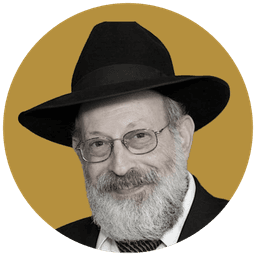How a British Election Turned Into A Torah Teaching Moment
This article is from the archive of The New York Sun before the launch of its new website in 2022. The Sun has neither altered nor updated such articles but will seek to correct any errors, mis-categorizations or other problems introduced during transfer.

The British election campaign just ended would seem an unlikely source for a Torah teaching moment, but there it was.
One of the blows the Labour Party absorbed in the days preceding the election was precipitated by Prime Minister Gordon Brown’s mistaken assumption on April 28 that the microphone he was wearing during a campaign stop was turned off.
The device had just finished recording an encounter Mr. Brown had with a mildly disgruntled voter, on the issue of immigration. After the polite interaction, Mr. Brown returned to his campaign car, forgetful of the fact that the microphone was still faithfully doing its job, and groused to staff members about the “bigoted woman” with whom he had just been forced to speak.
With the speed of electromagnetic waves, of course, the comment became part of news reports worldwide.
It was only days earlier that Jews accustomed to studying a chapter of “Pirkei Avot,” or the tractate “Fathers,” each spring and summer Sabbath, pondered the words of Rabbi Yehudah Hanasi (2:1): “An eye sees and an ear hears, and all of your actions are in the record written.”
The sage (known, too, as “Rebbe”) wasn’t referring to the press, of course, which does in fact sometimes capture (but sometimes misses and sometimes gets wrong) at least some of what at least famous people do or say. The “eye” and “ear” in Rebbe’s teaching are metaphorical, Divine ones; the record, filed in a realm far removed from the earthly. And the subjects of the surveillance and reports are each of us.
But Mr. Brown’s experience was nonetheless a reminder of that deeper truth, and of the fact that it is easy to become oblivious to the fact that everything we say and do is of concern to G-d – or, put otherwise, has meaning.
It’s not that we harbor some inner atheist. It’s just that there is a yawning gap between recognizing something intellectually and completely internalizing it as a compelling truth. In the prayer Aleinu, which ends every Jewish prayer service, we quote from Deuteronomy (4:39): “And you shall know today and restore to your heart that Hashem is G-d, in the heavens above and on the earth below…”
The “knowing today,” commentators note, is apparently insufficient. Our belief in G-d’s omnipotence and omniscience has to be “restored” to our hearts — internalized constantly — to truly affect our actions and our essences.
That was the message inherent in the strange blessing the tannaic sage Rabbi Yochanan ben Zakkai offered his students as he lay dying. The Talmud (Brachot 28b) recounts that he wished them that “the fear of Heaven be to you like the fear of flesh and blood.”
“That’s all?” they exclaimed, incredulous at their teacher’s apparent confusion of priorities. The sage’s response: “If only!”
“Think.” he continued. “When a person commits a sin in private, he says ‘May no person see me!’.” And yet, of course, he is seen all the same.
It has often occurred to me that scientific and technological advances can often serve not only practical purposes but spiritual ones. They can provide us important life-messages as we need them.
When a basic understanding of our solar system lulled humanity into feeling it had mentally mastered the sky, powerful telescopes were invented that revealed new and mysterious realms of an incomprehensibly large and expanding universe, and that keep us aware of how little of what’s out there we really understand. When the basic structure of the atom was fathomed, particle detectors came along and uncovered a bizarre zoo of inanimate beasties that make a mockery of our commonsense notions. So quasars and quarks keep us humble before the grandeur of Creation.
And then there are other, more mundane but increasingly utilized technologies, like the ubiquitous cameras on city streets or peering at us from our computer monitors, our GPSs, our E-ZPasses or our cellphones, that render us visible and audible where once we may have felt entirely alone. For all their downsides, they, too, are a healthy reminder.
They remind us, as did Rebbe, that even outside the turmoil of a national election, even when we’re not on the street or in a car or sitting at a computer, even if we’re not famous or of interest to mortal authorities, we are heard and we are seen, and our every action is duly recorded.
Rabbi Shafran is director of public affairs for Agudath Israel of America.]
© 2010 AM ECHAD RESOURCES

